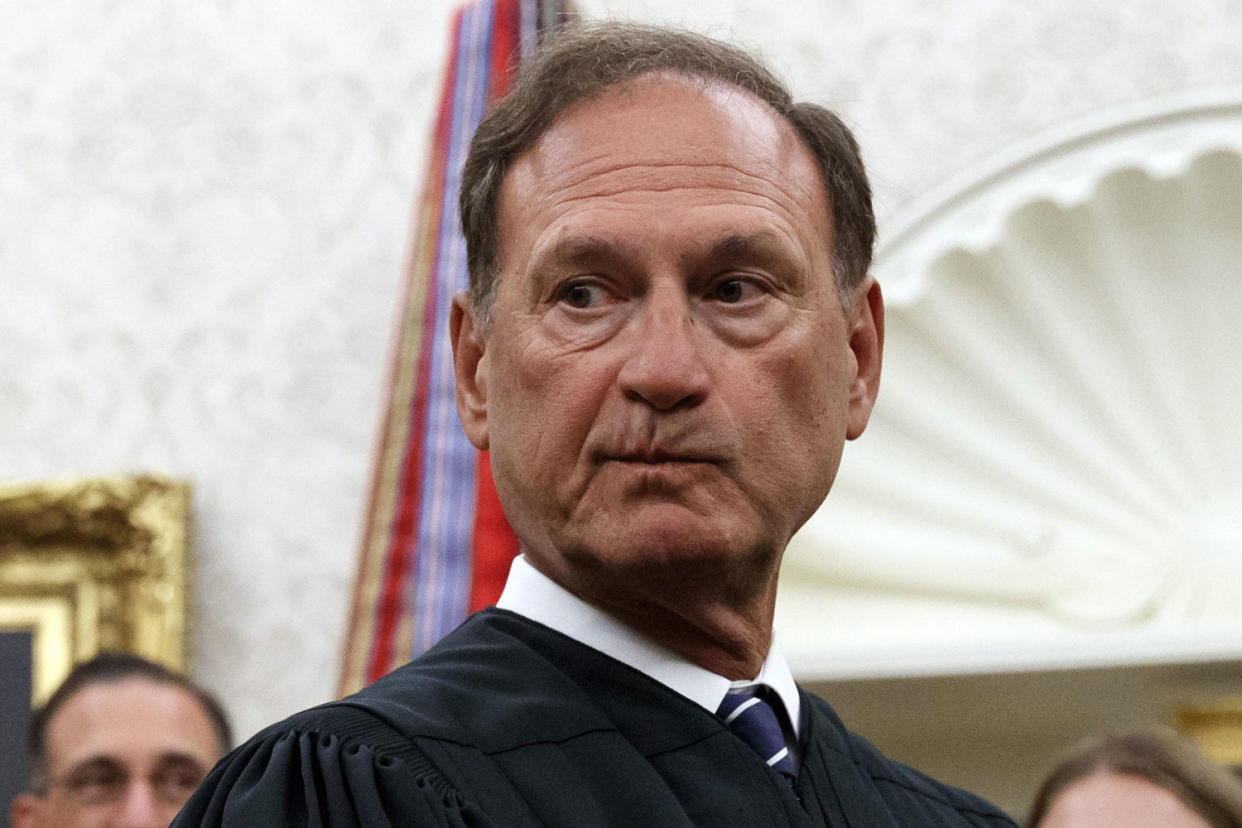If Alito won’t recuse himself from Jan. 6 cases, he should at least explain himself

- Oops!Something went wrong.Please try again later.
Amid the calls for someone in power, somewhere, to do something after the latest flag report on Justice Samuel Alito, there’s one modest measure he himself can and should take: Explain his nonrecusal from Jan. 6–related cases in an official written statement. That wouldn’t preclude any other remedial or investigative measures — I’ve previously noted the case for recusal given the first flag story.
But in the likely event that he doesn’t recuse himself, he should at least take this simple explanatory step that he took in another case argued this term. It’s something that, by his own prior action, he should see as appropriate here, too.
For background, The New York Times on Wednesday published its second story in as many weeks about a flag flying at one of Alito’s houses that was also carried by Capitol rioters on Jan. 6, 2021. Like other symbols whose cultural significance have changed over time or are open to interpretation, the inverted American flag from the first story and the “Appeal to Heaven” flag at his beach house have histories that both long predate Jan. 6. People are free to ignore their connection to the insurrection if they wish.
Such willful ignorance might have been easier, had Alito himself dispelled the connection. For the first story, he blamed a dispute between his wife and a neighbor — an explanation that, whether you believe it or not, didn’t address what his wife sought to convey in flying the inverted flag or what he thought about it, then or now. He didn’t comment to the Times for the second story.
The justice can attempt to clear things up in a written statement like the one he issued in Moore v. United States, a tax case that also raised questions about his impartiality. As I wrote at the time, his justification for not recusing himself in Moore was weak, but it had the benefit of putting his thoughts on paper for all to see.
With this personal precedent established, Alito should follow it for the pending cases of Fischer v. United States (over obstruction charges for Jan. 6 defendants, which can also affect Donald Trump) and the former president’s immunity claim in the federal election interference case, Trump v. United States.
I’ve also noted that Justice Clarence Thomas should have explained his decision to sit on these cases as well. And while no one will be surprised if Alito takes the Thomas route of silence on the matter, Alito would be effectively overturning yet another precedent in the process.
Subscribe to the Deadline: Legal Newsletter for weekly updates on the top legal stories, including news from the Supreme Court, the Donald Trump cases and more.
This article was originally published on MSNBC.com

